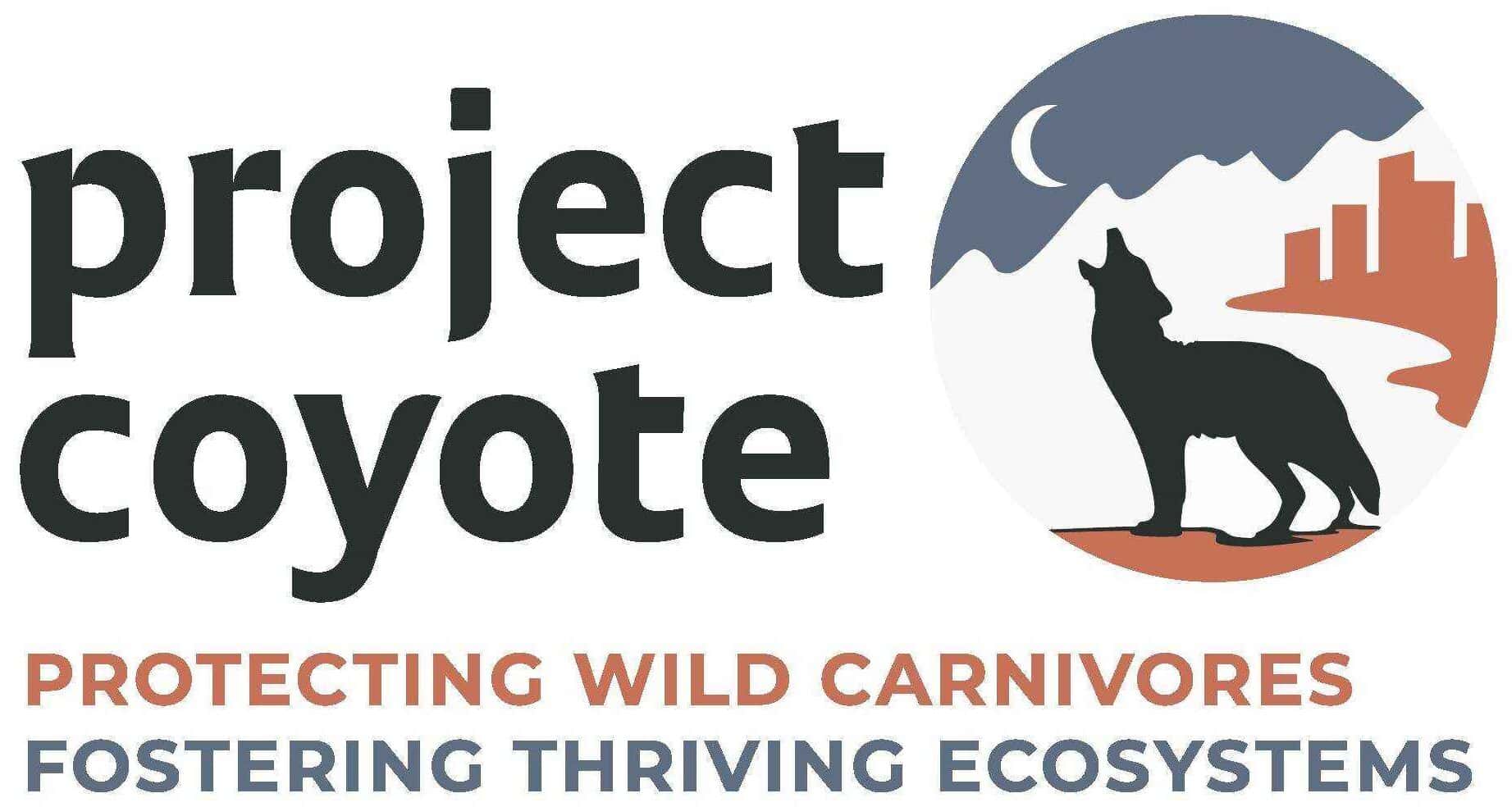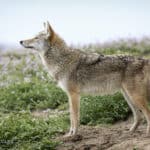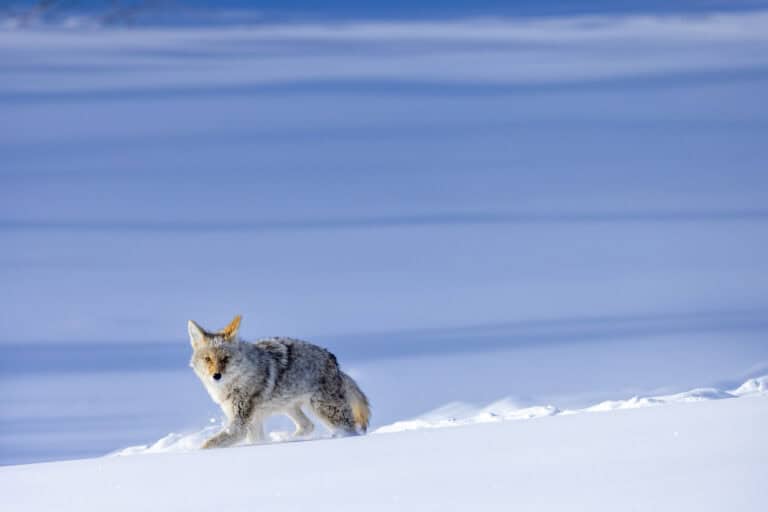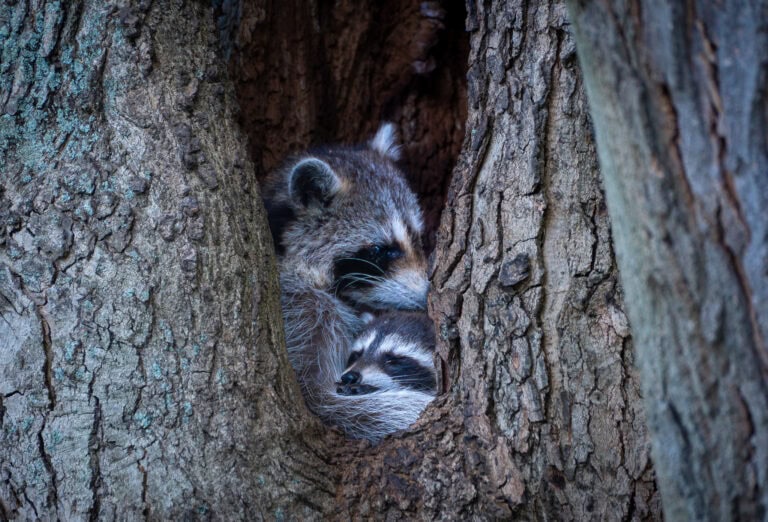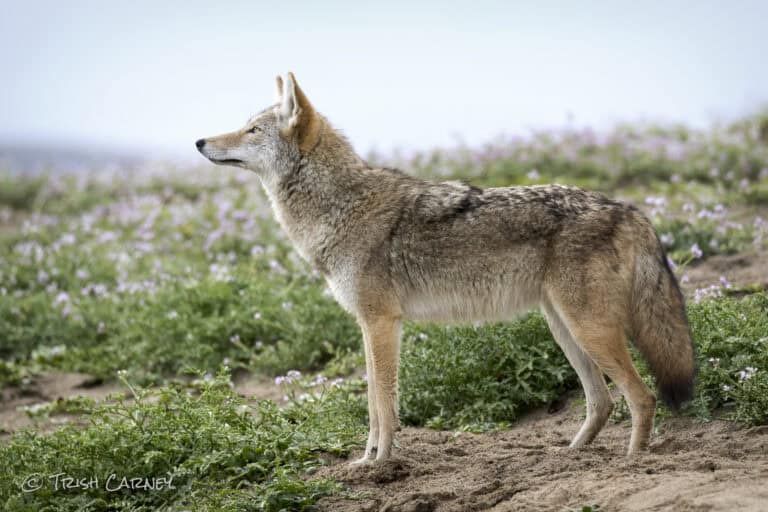March 17, 2025
Media Contacts: info@projectcoyote.org, 415.945.3232
LARKSPUR, CA — Project Coyote is thrilled to announce the second annual Coyote Awareness Week, taking place from March 17th to March 22nd, 2025. This weeklong event leads up to National Coyote Day on March 23rd and aims to raise awareness about the intense persecution and misunderstanding coyotes face, while promoting the importance of compassionate coexistence.
How to Get Involved in Coyote Awareness Week:
Project Coyote will host a Coyote Awareness Kick-off Webinar on “How to Take Action for Coyotes in Your Community” on Monday, March 17 at 12 p.m. PT / 3 p.m. ET. Project Coyote staff will introduce the newly released Coyote Coexistence Plan, plus share tips, resources, and guidance on how to advocate for coyote coexistence in your community.
Throughout Coyote Awareness Week, Project Coyote will share educational content on social media. We encourage supporters to follow us (Facebook, X/Twitter, LinkedIn, Instagram, YouTube, TikTok), engage with or share our posts, and use the #CoyoteAwarenessWeek hashtag to amplify our message.
The public can also participate in Coyote Awareness Week by taking the coyote pledge to commit to being a coyote ally and downloading the Coyote Awareness Week Toolkit, which provides resources on coyote coexistence, social media graphics, and other ways to take action.
Why We’re Raising Awareness About Coyotes
Coyotes represent the pinnacle of unethical and unscientific wildlife “management” in the U.S. Increased awareness of, and appreciation for, coyotes is critically needed to reform outdated, wildlife policies that have been deeply rooted in American culture since European colonization.
Predator extermination campaigns in the 1800s–mid 1900s nearly wiped wolves, mountain lions, and bears off the map. But when the focus turned to coyotes, the species responded with resilience and adaptability, tripling their range in the last century and filling vacant niches where wolves had been extirpated. Rather than celebrating their ability to thrive in human-dominated landscapes and recognizing the vital ecological roles they play, society has often labeled the coyote as a “pest” or a threat to human communities.
The coyote’s adaptability and resilience have left them vulnerable to insufficient legal protections. In nearly every region of the United States, coyotes can be killed in unlimited numbers 365 days a year—often incentivized through bounties—using almost any means, including killing contests, trapping, poisoning, hounding, and unregulated recreational killing.
Inadequate protections mean that over 500,000 coyotes are killed yearly—68,000 by the USDA’s Wildlife Services program alone at taxpayer expense in 2023. Accurate numbers do not exist for how many coyotes are killed through “sport” or wildlife killing contests, because state agencies often do not track or monitor these killings. Even a conservative estimate translates to:
- 41,666 coyotes killed every month;
- 9,615 coyotes killed every week;
- 1,370 coyotes killed every day,
- 57 coyotes killed every hour; and
- 1 coyote killed every minute
The public can learn more about coyotes and the persecution they face from Project Coyote’s Coyote Policy Factsheet.
“Changing hearts and minds about coyotes is key to fostering a more compassionate and ecologically sound future for all wildlife. Coyotes are resilient, intelligent, and family-oriented animals that deserve protection from outdated and inhumane policies,” said Camilla Fox, Project Coyote Founder & Executive Director. “That’s why they are our flagship species at Project Coyote and why we launched Coyote Awareness Week—to inspire coexistence and appreciation for America’s Song Dogs!”
The Importance of Coexisting in Our Multispecies Communities
Coexisting with coyotes in both urban and rural communities is essential. Coyotes play critical ecological roles, such as regulating disease transmission by managing rodent populations and culling sick animals, keeping communities clean by scavenging carrion, and limiting mesocarnivore populations (e.g., raccoons, skunks, and foxes), which in turn increases bird diversity and abundance.
Science shows that non-lethal coexistence strategies are the most effective way to reduce conflict. Indiscriminate killing disrupts coyote social structures, increases reproduction rates, and can even lead to heightened conflicts with livestock. Despite these facts, fear-driven narratives often fuel lethal management responses.
To reduce negative encounters and promote coyote coexistence, communities can take proactive steps by adopting Project Coyote’s model Coyote Coexistence Plan, which emphasizes reduction of coyote attractants, responsible domestic animal supervision, and humane risk management measures. Coyotes, like all wildlife, have a right to exist. They are sentient, family-oriented beings who deserve lives free from human persecution.
“Coyote power: surviving by one’s intelligence and wits when others cannot; embracing existence in a mad, dancing, laughing, sympathetic expression of pure joy at evading the grimmest of fates; exulting in sheer aliveness; recognizing our shortcomings with rueful chagrin.” — Dan Flores, author, “Coyote America” and Project Coyote Ambassador
